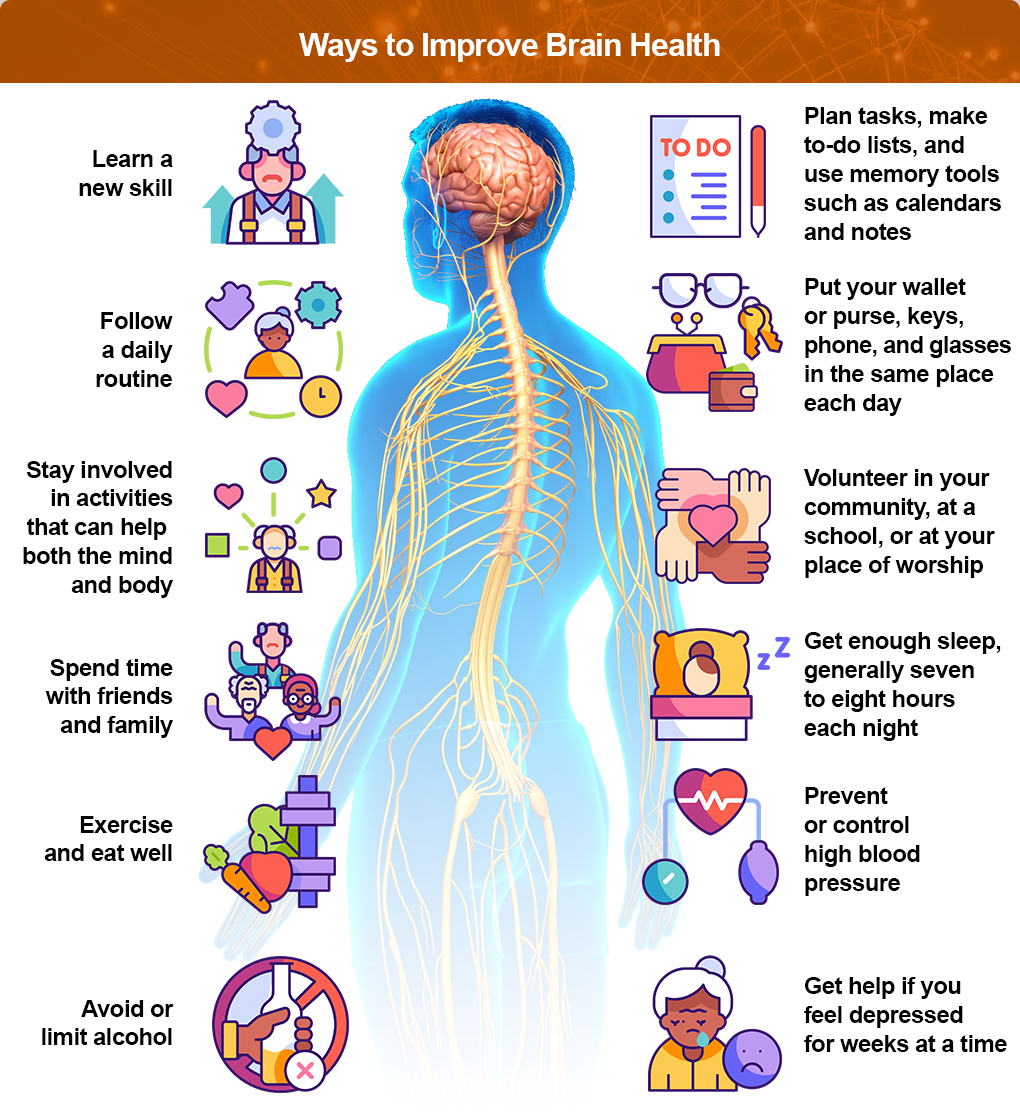Coping With Cognitive Decline
Are There Treatments That Change the Course of Disease?2,3
When cognitive changes begin to affect independence or safety, treatment may be recommended to:
- Slow down symptom progression
- Improve or maintain daily functioning
- Support emotional and mental well-being
- Help you and your family plan ahead
Talk to your doctor if you’re noticing more difficulty with everyday tasks or feel that your symptoms are getting worse. Early action can make a meaningful difference.
In some cases, cognitive decline—especially when related to Alzheimer’s disease—may be treated with disease-modifying therapies. These are designed to target the underlying changes in the brain and may help slow progression in the early stages. For more information on available treatments visit https://detectalz.com/patient-toolkit/treating-alzheimers/.
- These treatments work best when started early, before symptoms become severe.
- They’re usually considered for people with mild cognitive impairment or early Alzheimer’s disease who meet specific criteria (including biomarker testing).
While not a cure, these treatments may help preserve quality of life for a longer period.
You’re Not Alone
Living with cognitive changes can be challenging—but support, strategies, and sometimes treatment can help you continue to lead a full and meaningful life.If you’re concerned about memory changes in yourself or a loved one, don’t wait. Talk to your doctor to get the right diagnosis, guidance, and support.
Sources
- National Institute of Aging. Memory Problems, Forgetfulness, and Aging. (www.nia.nih.gov/health/memory-loss-and-forgetfulness/memory-problems-forgetfulness-and-aging).
- Belder CRS, Schott JM, Fox NC. Preparing for disease-modifying therapies in Alzheimer’s disease. Lancet Neurol. 2023;22(9):782-783.
- Randhawa SS, Varghese D. Geriatric Evaluation and Treatment of Age-Related Cognitive Decline. [Updated 2023 Sep 28]. In: StatPearls [Internet]. Treasure Island (FL): StatPearls Publishing; 2025 Jan-. Available from: https://www.ncbi.nlm.nih.gov/books/NBK580536/
All URLs accessed on September 22, 2025.


